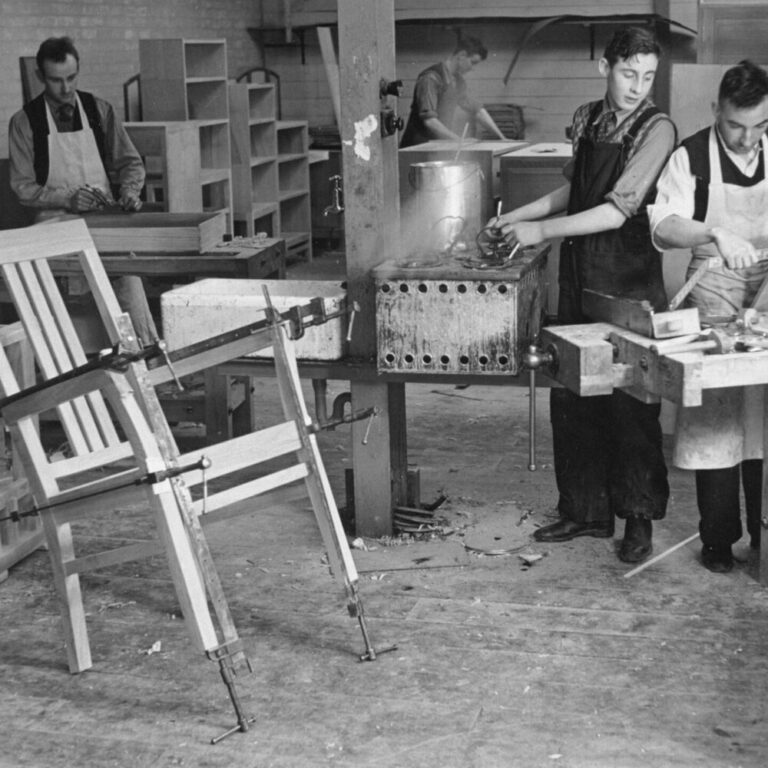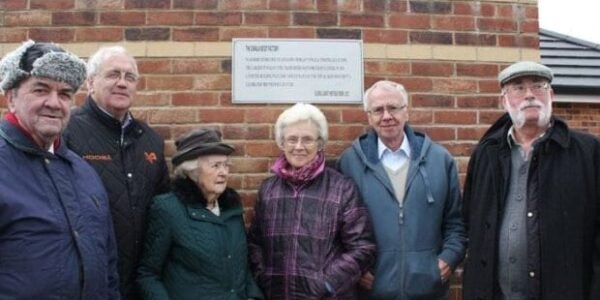THE GWALIA WORKS
This Brynmawr factory was established in 1929 by an Order of Friends at a time when high unemployment and much hardship followed the 1920s decline of coal mining at Brynmawr.This lighter industrial work not only provided the chance for those unable to find work in the mines or in linked industry to earn a wage, but also to gain new skills.
At the Gwalia Works the manufacturers, ‘Brynmawr Furniture Makers Ltd’ and ‘Brynmawr Bootmakers Ltd’ were established as a source of employment for local people.
There was a commitment to high quality construction and materials combined with simplicity in design.The style of the furniture was in keeping with modern trends, and orders were taken mostly from private sources. In time “Brynmawr furniture” gained a respectable degree of popularity outside the local area.
With the outbreak of World War II in September 1939, local men were absorbed into the munitions works and the imposition of food rations meant that the programme of subsistence production was closed down. Another casualty was the furniture business – as the market for high-class furniture stagnated. However, the Bootmakers continued to flourish as boots were needed for the heavier manufacturing industries supplying the war effort. The Bootmakers’ factory even gained government contracts and was able to become self-supporting.





